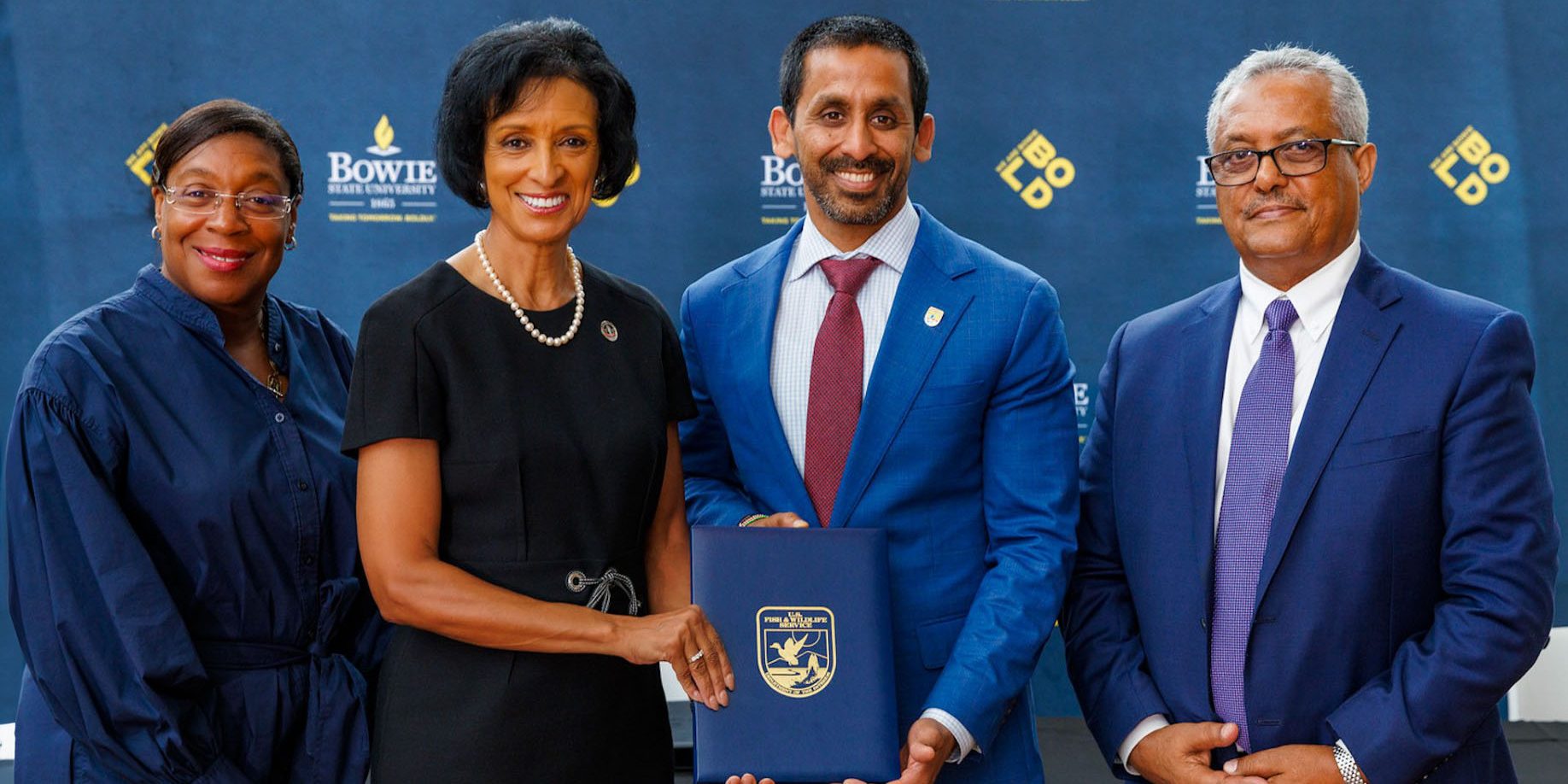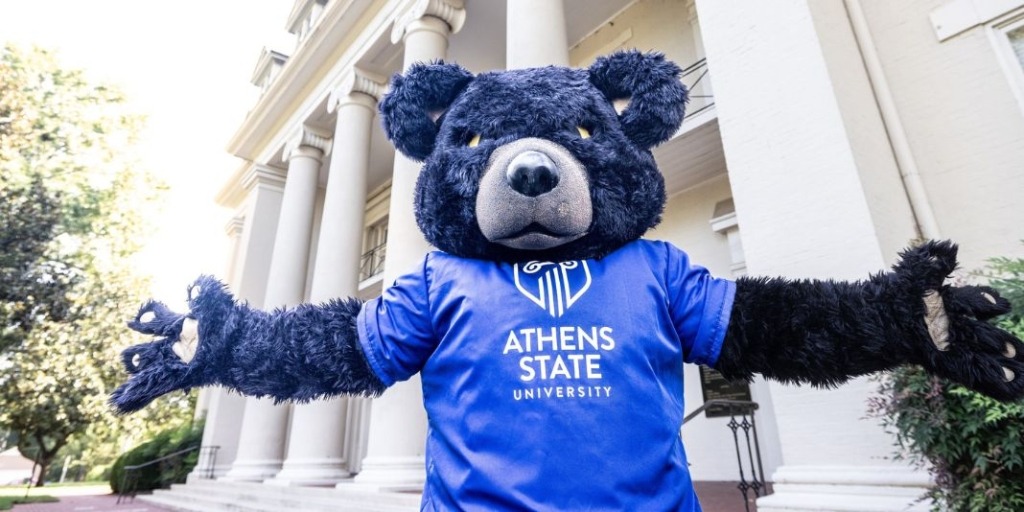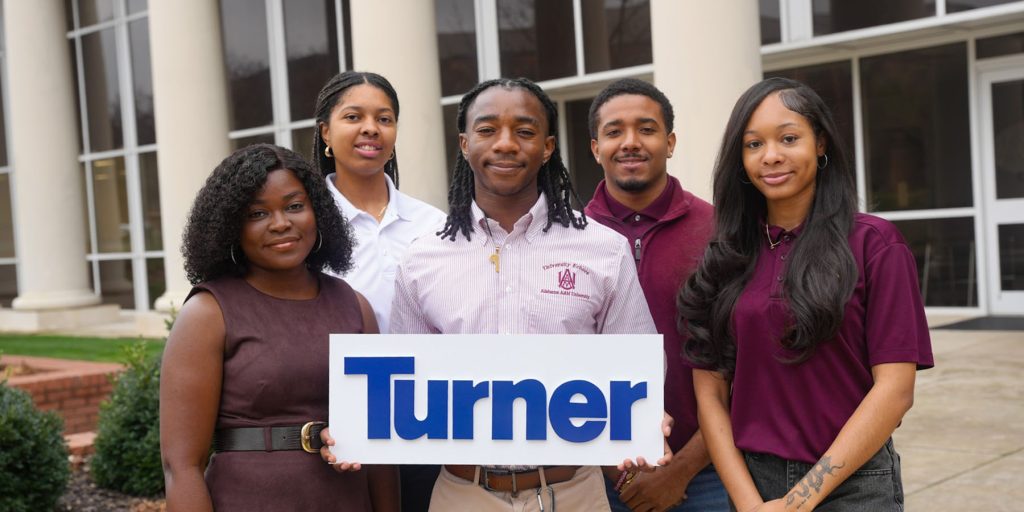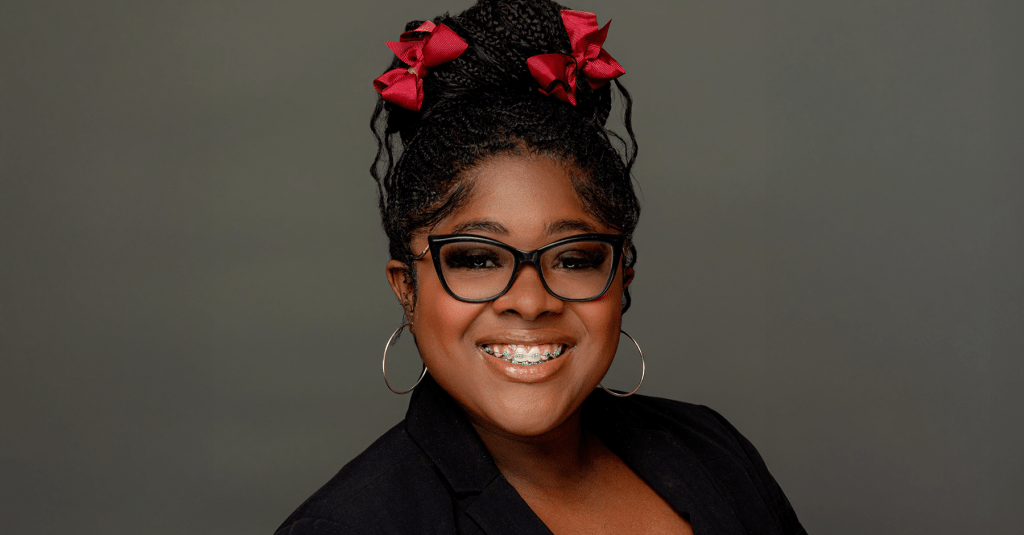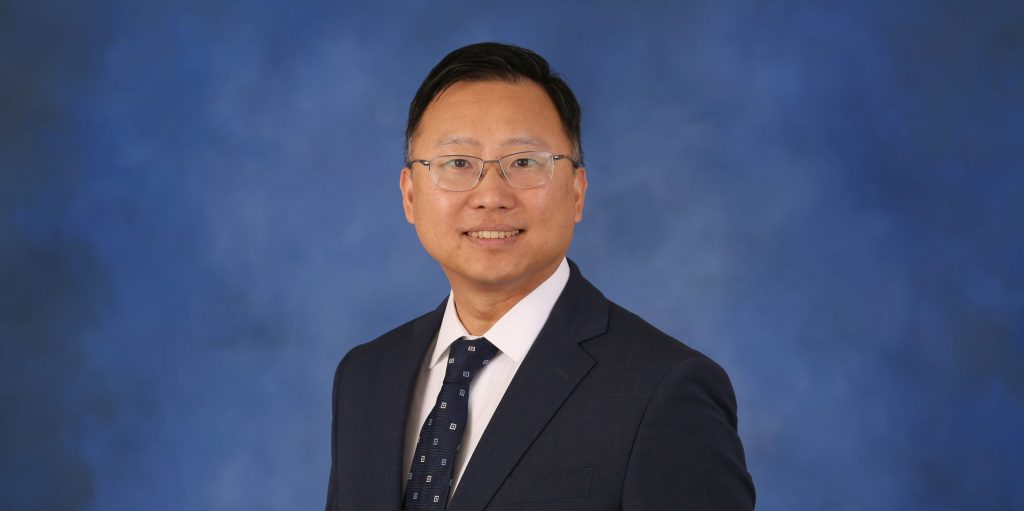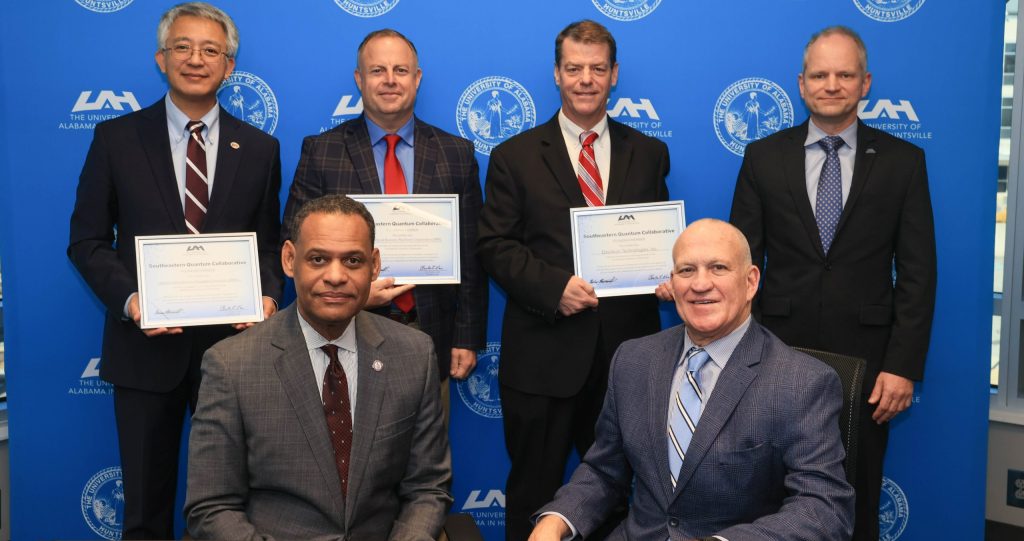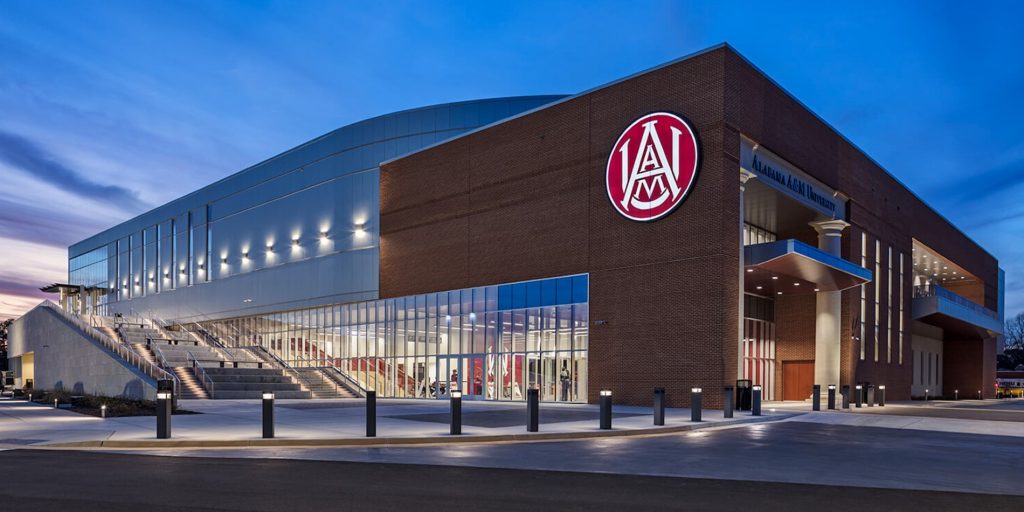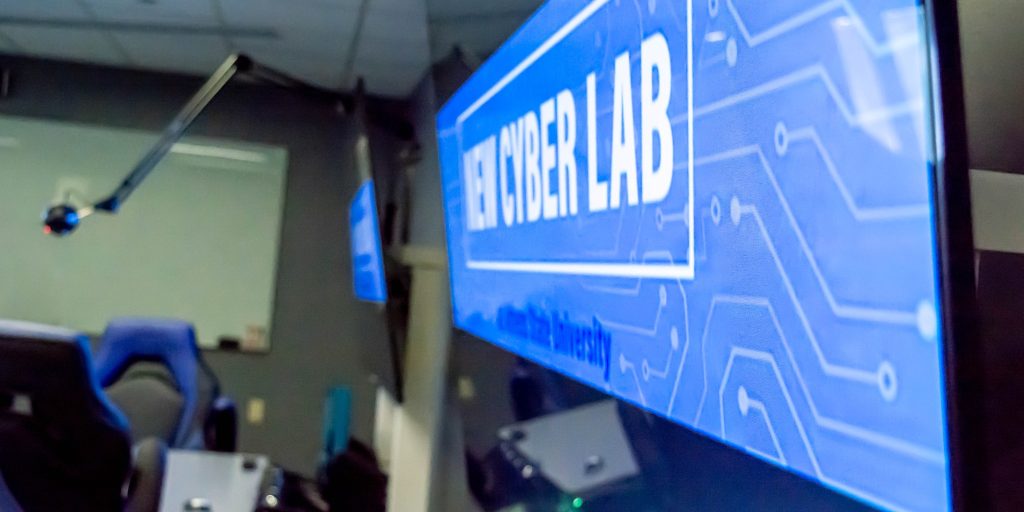BOWIE, Md. — Alabama A&M University has taken a significant step in diversifying the nation’s conservation workforce by signing a Memorandum of Understanding with the U.S. Fish and Wildlife Service. This agreement positions the university as a key member of the agency’s university consortium, a nationwide initiative aimed at recruiting students from Minority Serving Institutions into conservation careers.
The MOU signing took place at Bowie State University, where Alabama A&M joined Bowie State and Bethune-Cookman University in expanding the service’s partnership with MSIs to create a workforce that mirrors the diversity of the American population.
Dr. Wubishet Tadesse, professor and chair of the AAMU Department of Natural Resources and Environmental Sciences, signed the MOU on behalf of Alabama A&M. Dr. Kozma Naka, associate professor and coordinator of the AAMU Forestry, Ecology and Wildlife Program was also in attendance. Dr. Dr. Lloyd Walker, AAMU dean of the College of Agricultural, Life and Natural Sciences gave remarks virtually. Alabama A&M University President Daniel K. Wims also signed the MOU virtually, and emphasized the long-term impact of this collaboration.
“Alabama A&M University’s newly established working partnership with the U.S. Fish and Wildlife Service’s Consortium of Minority-Serving Institutions benefits Alabama A&M University, particularly its students and the community,” said Wims. “This access will identify student opportunities for college courses, career development, training and employment for conservation-focused efforts and projects.
“Our commitment and dedication to this effort will add to the success of all institutions involved.”
The University Consortium now includes seven universities across six states, collectively serving more than 76,000 students. Along with Alabama A&M, the consortium includes Bowie State, Bethune-Cookman, the University of Texas at San Antonio, New Mexico State University, Tuskegee University, and Fort Valley State University.
Alabama A&M joins the FWS Consortium to work together to cultivate future leaders in conservation by providing educational resources, professional training, and career pathways in wildlife and environmental sciences.
“Meeting the rising conservation challenges in the 21st century demands new approaches and innovative, inclusive thinking,” said Siva Sundaresan, deputy director of the U.S. Fish and Wildlife Service. “In the face of urgent threats such as land conversion, widespread species decline, climate change, and increased detachment from nature, closing the gap in workforce diversity underrepresentation is a mission-critical element that will have real impact on the delivery of our conservation mission for the American people.”


